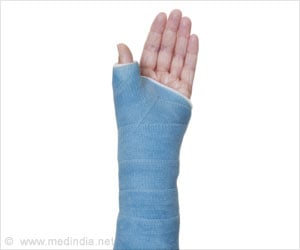Few minutes of light exercise can increase the lifespan of older men and overall volume rather than recommended 10 minute bouts can lower risk of death.
Highlights
- A link between low-intensity physical activity and the risk of death was found
- Low-intensity physical activity can lower the risk of mortality among older men
- Total volume of physical activity, from light intensity upwards lowers the risk of death
The research team collected data from the British Regional Heart Study to investigate if any other patterns of activity can lower the risk of death.
Physical Activity in Older Men
In this study, about 7735 participants from 24 British towns, who were in the age group of 40 and 59 participated when the study started in 1978-80.
In 2010-12, about 3137 survivors were called for a check-up, where a physical examination and questions about their lifestyle, sleeping patterns, and if they had ever been diagnosed with heart disease were asked.
Among all the participants, about 1566 (50%) men have agreed to wear the device. However, after excluding men who had pre-existing heart disease and those who did not wear the accelerometer during the seven days, the final analysis was taken based on 1181 men, whose average age was 78 years.
Benefits of Regular Exercise in Older Men
Every day, an additional 30 minutes of light intensity activity, including gentle gardening or taking the dog for a walk reduced the risk of death by 17 percent, which persisted even after taking into account of their lifestyle factors like sedentary time.
The reduction in death risk was around 33 percent for every additional 30 minutes of moderate to vigorous intensity physical activity per day, which showed that the light intensity activity could also prolong life.
Also, no evidence suggests that moderate to vigorous activity in bouts of 10 minutes was better than accumulating it in shorter sessions.
Irregular bouts of activity could lower the risk of death by 41 percent and bouts that last 10 or more minutes lowered the risk of death by 42 percent.
Irregular bouts were easier to achieve, as two-thirds (66%) of men were able to meet their weekly total of moderate to vigorous physical activity. However, only 16 percent were able to manage in bouts of 10 or more minutes.
Also, no evidence suggests breaking up sitting time can lower the risk of death. No firm conclusions could be drawn about cause and effect, as this is an observational study.
Participants who wore the accelerometer were found to be younger and had healthier lifestyles than those who did not, which could have changed the results, reveals the research team.
Also, the findings are not clear if it can be equally applicable to younger age groups and older women. However, the results of this study can be used to refine current physical activity guidelines for older adults to make them more achievable.
Modest Activities are also Beneficial
Future research might emphasize that all physical activity is worthwhile for extending the lifespan.
"[The ] results suggest that all activities, however modest, are beneficial. The finding that [low-intensity physical activity] is associated with lower risk of mortality is especially important among older men, as most of their daily physical activity is of light intensity," noted the research team.
"Furthermore, the pattern of accumulation of physical activity did not appear to alter the associations with mortality, suggesting that it would be beneficial to encourage older men to be active irrespective of bouts," explained the research team.
Source-Medindia
















